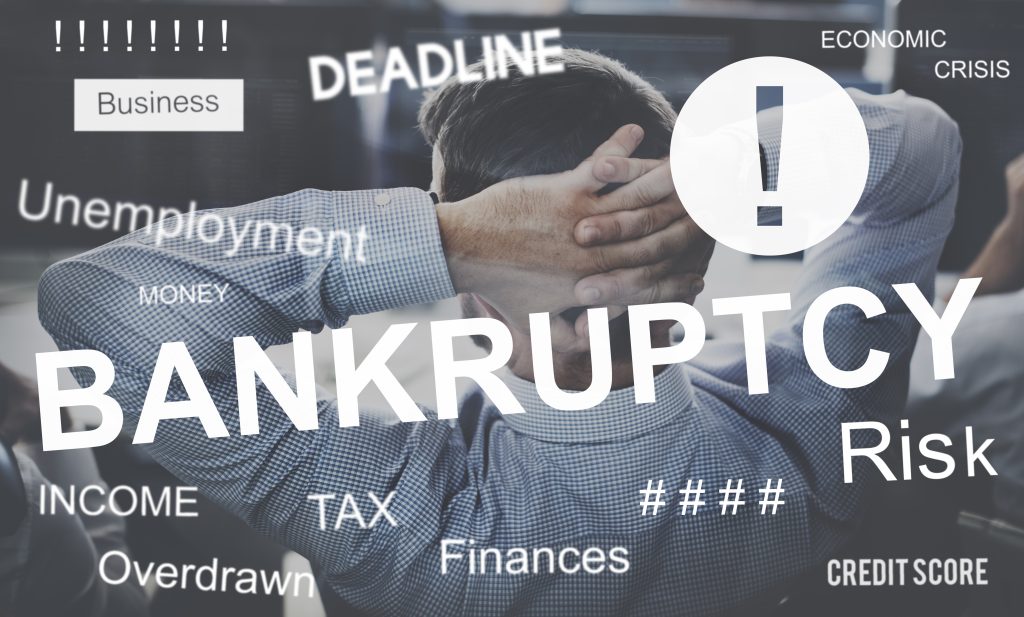Facing financial difficulty is a daunting experience, and many individuals seek a Chapter 7 Bankruptcy Lawyer to navigate the complexities of bankruptcy. But without the proper financial guidance on how to choose one, you might make a mistake!
A Chapter 7 Bankruptcy Lawyer can be a critical ally in guiding you through the legal process. Additionally, they ensure to protect your rights and achieve the best possible outcome.
However, understanding the nuances of Chapter 7 bankruptcy can provide significant debt relief and a fresh start for those burdened by overwhelming debt.
Most law firms often encounter clients who are unsure about the differences between Chapter 7 and other forms of bankruptcy. Chapter 7 allows for the liquidation of non-exempt assets to pay off creditors, offering a streamlined option for those eligible.
Through this blog, I will help assess whether this path is right for you and explain each step clearly. Besides, I will also explain why engaging a knowledgeable lawyer can alleviate the stress associated with bankruptcy petitions.
This ensures that the process remains transparent and manageable, enabling you to regain financial stability with confidence. Learn more about Chapter 7 Bankruptcy Lawyer
Understanding Chapter 7 Bankruptcy
Essentially, people often call Chapter 7 code as “liquidation bankruptcy.” This doesn’t mean you lose everything you own.
Instead, a court-appointed trustee reviews your assets and may sell some non-exempt property to repay your creditors.
However, importantly, many things are typically protected, like your home (up to a certain value), car, necessary household goods, and personal belongings. These are called “exemptions,” and they vary by state.
Key Terms to Know in Chapter 7 Bankruptcy

Before anything, I would like you to keep in mind some of the most important terms that one must know related to Chapter 7 Bankruptcy.
Besides, understanding these key terms is essential for navigating the Chapter 7 bankruptcy process. By familiarizing yourself with these concepts, you can better understand your rights and options.
For making the entire thing easier, I have divided this section into there parts: parties involved, process, and concepts. So, without further ado, let us get started!
Parties Involved: Debtor, Creditor, and Trustee
First up is “Debtor.” Simply put, this is the person filing for bankruptcy. It’s you, the individual, seeking debt relief.
Conversely, a “Creditor” is the person or entity to whom you owe money, like a credit card company, bank, or loan provider.
Now, let’s talk about the “Trustee.” This is a court-appointed individual who oversees your bankruptcy case.
The trustee’s main job is to review your financial situation, determine if you have any non-exempt assets, and, if so, sell them to repay your creditors. However, as I have already discussed, many people filing Chapter 7 don’t have non-exempt assets.
The Process: Meetings, Tests, and Discharge
Another important term is the “341 Meeting,” also known as the “Meeting of Creditors.” This is a mandatory meeting where you’ll meet with the trustee and potentially your creditors. They may ask you questions about your financial situation. However, it’s usually a brief and straightforward process.
Moving on, we have the “Means Test.” This test determines your eligibility for Chapter 7 bankruptcy. It compares your average income over the past six months to the median income in your state. If your income is above the median, you might not qualify for Chapter 7 and may need to consider Chapter 13 bankruptcy instead.
Then there’s the “Discharge.” This is the ultimate goal of Chapter 7. A discharge is a court order that releases you from legal responsibility for most of your debts. This means you no longer have to pay them. However, some debts, like student loans (in most cases), certain tax debts, child support, and alimony, are typically not dischargeable.
Key Concepts: Estate, Exemptions, and Liquidation
Next, we have “Bankruptcy Estate.” This might sound fancy, but it simply refers to all of your property at the time you file for bankruptcy. Think of it as a snapshot of everything you own, including your house, car, bank accounts, and possessions. However, not everything in the bankruptcy estate is up for grabs. That’s where “Exemptions” come in.
Exemptions are laws that protect certain types of property from being sold during bankruptcy. These exemptions vary from state to state, but they often include things like your primary residence (up to a certain value), a car, necessary household goods, and personal items. Therefore, it’s crucial to understand the exemptions in your specific state.
Finally, let’s touch on “Liquidation.” Chapter 7 is sometimes called “liquidation bankruptcy” because the trustee may sell non-exempt assets. However, as mentioned earlier, many people filing Chapter 7 don’t have non-exempt assets, so no liquidation occurs. The “Bankruptcy Estate” encompasses all your property, but “Exemptions” protect specific assets from liquidation.
A Step-by-Step Look: Financial Guidance on How Chapter 7 Works!

So, how does it work?
First, you’ll need to file a petition with the bankruptcy court, providing detailed information about your income, debts, assets, and expenses. This paperwork is crucial, so accuracy is key.
Next, you’ll attend a meeting of creditors. This is a formal meeting where the trustee and your creditors can ask you questions about your financial situation. Don’t worry; it’s usually a short and straightforward process.
After that, the trustee will determine if you have any non-exempt assets to sell. If you don’t, which is often the case for many people filing Chapter 7, then the process moves forward relatively quickly.
Finally, after a few months, you’ll receive a discharge. This discharge legally releases you from most of your debts. This means you’re no longer legally obligated to pay them.
Eligibility and the Means Test
Now, it’s important to understand what debts can’t be discharged. These typically include things like student loans (in most cases), certain tax debts, child support, and alimony.
Therefore, it’s crucial to speak with a qualified bankruptcy attorney to understand the specifics of your situation.
Furthermore, eligibility for Chapter 7 bankruptcy requires passing the means test, which determines if one’s income is low enough to file.
This test compares the individual’s median income to the state’s median income levels. If a client’s income is below the median, they typically qualify for Chapter 7.
For those above the median, calculating disposable income becomes crucial. Some firms help assess whether enough disposable income exists to cover debts under a repayment plan. If not, filing for Chapter 7 is deemed possible, allowing the discharge of significant unsecured debts.
Differences Between Chapter 7 and Chapter 13 Bankruptcy
While Chapter 7 focuses on asset liquidation, Chapter 13 bankruptcy involves creating a repayment plan to address debts over time. Our clients often inquire about these differences to decide the best path for financial recovery.
Chapter 13 is best for those with regular income who can manage some debt repayment. In contrast, Chapter 7 is more appropriate when substantial dischargeable debts exist and assets are minimal.
Some of the best law firms provide comprehensive evaluations to ensure individuals choose the bankruptcy chapter that aligns with their financial circumstances and future goals.
Financial Guidance on Navigating the Bankruptcy Process
When navigating Chapter 7 bankruptcy, understanding the steps is crucial. Let us explore the essential functions of a bankruptcy lawyer, the filing process, handling debts, and the importance of exemptions.
The Role of a Bankruptcy Lawyer
A bankruptcy lawyer is integral in helping us navigate the complexities of Chapter 7 bankruptcy. From initial consultations to filing documentation, their assistance ensures adherence to legal requirements.
Experienced bankruptcy attorneys offer insights into the best strategies to protect assets and manage debts. They also represent you during court proceedings and the meeting of creditors.
Lawyers assist in stopping creditor harassment and ensure that the clients understand how to benefit from bankruptcy exemptions effectively.
Filing for Bankruptcy and Court Procedures
Filing for bankruptcy begins with gathering necessary documentation, including income statements and a list of debts and assets. We submit these to the bankruptcy court, initiating the legal process.
A significant part of this process involves attending a meeting of creditors, where the lawyer and the client discuss the financial affairs.
Understanding court procedures is vital. It’s here we aim for a bankruptcy discharge, releasing us from certain debts.
The court evaluates if we’re eligible for Chapter 7, considering our income, expenses, and debt nature. Choose lawyers who will guide you through each stage, ensuring accuracy and compliance.
Dealing with Specific Debts and Creditors
Bankruptcy filing must accurately list all creditors and types of debts, distinguishing between secured and unsecured obligations.
Medical bills, credit card debt, and some forms of tax debt may be discharged. Child support, alimony, and student loans typically remain non-dischargeable.
Properly addressing each debt type ensures we maximize benefits from the bankruptcy process. It is important that you are able to handle creditor negotiations effectively, which our attorneys often assist with to curb creditor harassment and improper claims.
Bankruptcy Exemptions and Assets
Exemptions play a crucial role in preserving certain assets during bankruptcy. We utilize the exemption system to protect items like personal property, real estate, and sometimes a wildcard exemption for other valued belongings. Understanding these exemptions helps us maintain essential assets post-bankruptcy.
Each state’s laws may vary, influencing what we can claim as exempt. Navigating this part of the process requires expert guidance to ensure we’re optimizing protections available under the law, ultimately impacting what remains ours after discharge.
You May Like To Read This:
















